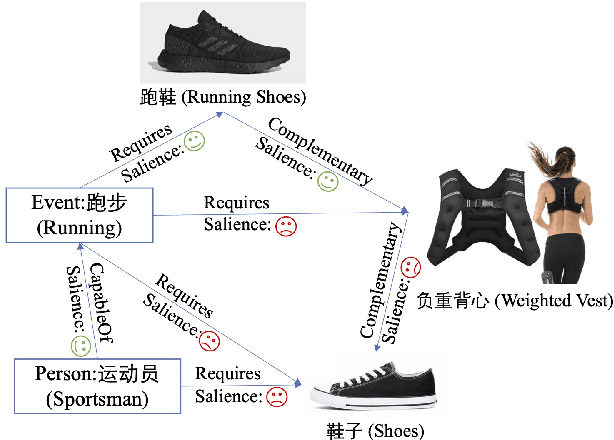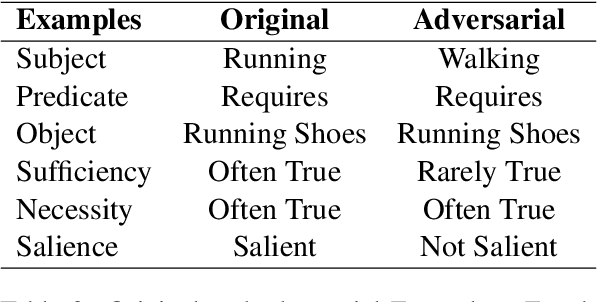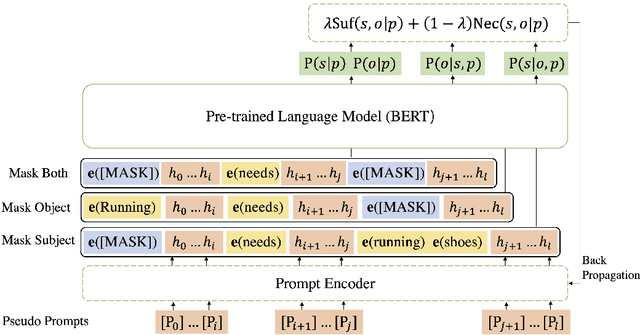Commonsense Knowledge Salience Evaluation with a Benchmark Dataset in E-commerce
Paper and Code
May 22, 2022



In e-commerce, the salience of commonsense knowledge (CSK) is beneficial for widespread applications such as product search and recommendation. For example, when users search for "running" in e-commerce, they would like to find items highly related to running, such as "running shoes" rather than "shoes". However, many existing CSK collections rank statements solely by confidence scores, and there is no information about which ones are salient from a human perspective. In this work, we define the task of supervised salience evaluation, where given a CSK triple, the model is required to learn whether the triple is salient or not. In addition to formulating the new task, we also release a new Benchmark dataset of Salience Evaluation in E-commerce (BSEE) and hope to promote related research on commonsense knowledge salience evaluation. We conduct experiments in the dataset with several representative baseline models. The experimental results show that salience evaluation is a hard task where models perform poorly on our evaluation set. We further propose a simple but effective approach, PMI-tuning, which shows promise for solving this novel problem.
 Add to Chrome
Add to Chrome Add to Firefox
Add to Firefox Add to Edge
Add to Edge